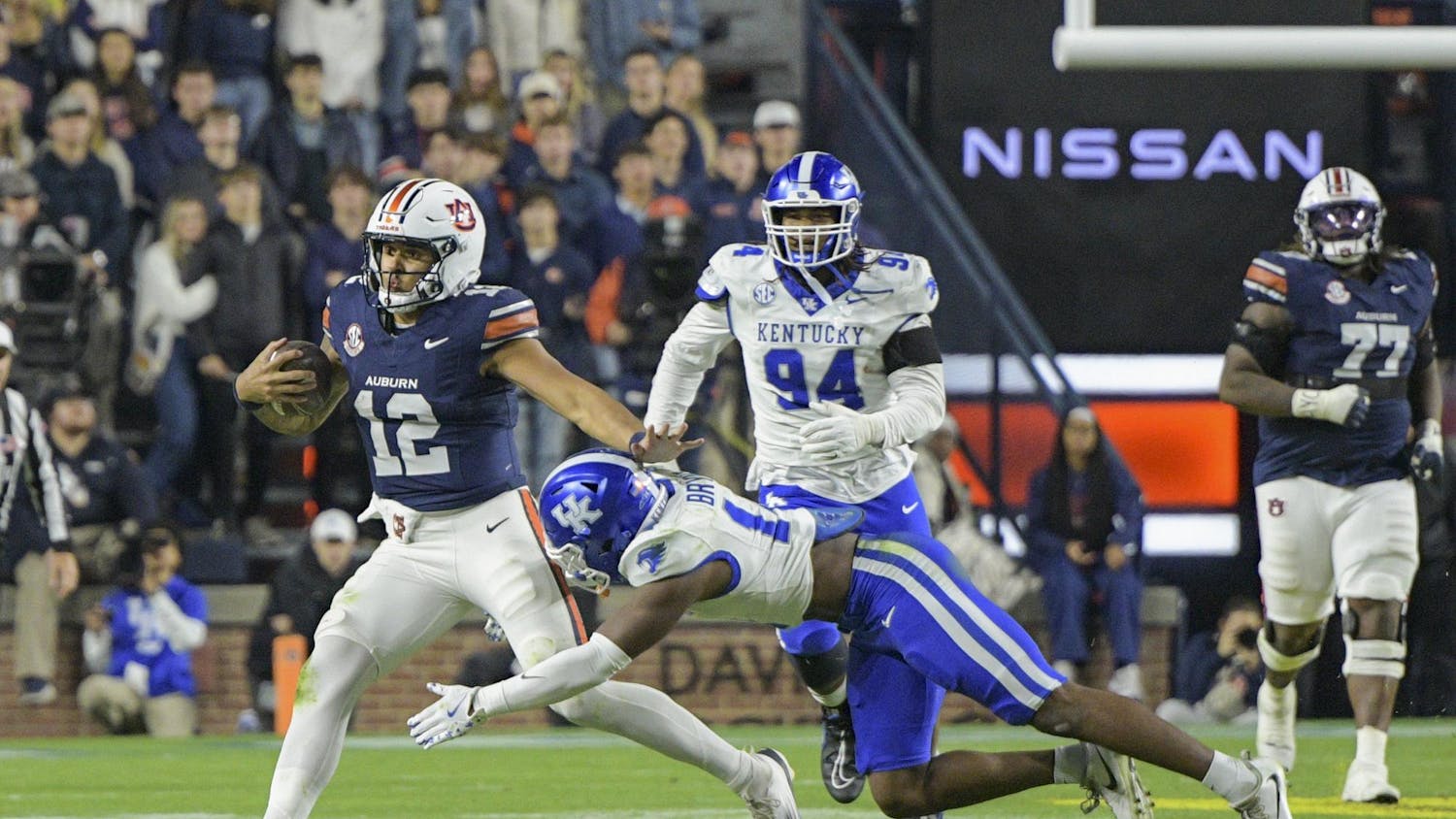Citizens can sometimes find voting at the polls daunting due to confusing ballots, strict voter identification requirements and lengthy lines. The voting process may be especially intimidating for new voters, typically young college students, but completing three key steps will guarantee an effortless election day come Nov. 5.
Casting a ballot for a candidate is simple. However, the never-ending list of local candidates, wordy amendments and varying deadlines and rules across counties and states can muddle voting steps.
Sylvia Hurley, freshman in finance, is no stranger to the confusion many first-time voters face when understanding registration and absentee ballot requests. Hurley attempted to request an absentee ballot as she lives four hours away from her hometown in Baldwin County, but to her surprise, she missed the deadline to “snail mail” in her application by one day.
“I really wish that, like, I had done the deep dive into the process of sending in an absentee ballot," Hurley expressed. "Especially like being at college, that was just something I didn't think about.”
In Alabama, the deadline for mailed-in absentee ballot applications was on Oct. 29, while in Georgia, the deadline was on Oct. 25. Out-of-state students in particular may struggle with discrepancies in dates across states if they have not researched well in advance.
Although she may not be voting in this election, Hurley points to the internet, her parents and voter registration flyers posted around campus as her most helpful sources for staying aware of the election timeline.
For Hurley, one quote sums up her ideal voting strategy. “The election doesn't start on November 5. It ends on November 5,” Hurley said. “When in doubt, find out early. Register early. Send in your ballot early.”
Students can be prepared for any election with three easy steps: register, plan and vote.
Cory Unruh is a grant manager at Auburn University’s College of Science and Mathematics’s Office of Research and serves on the board of directors for the League of Women Voters in East Alabama, an organization that works to ensure inclusive voting rights for all Americans.
Unruh describes the first step of registering in Alabama as “pretty simple”. Any person with a valid identification card could register online before Oct. 21 in under 60 seconds at the Alabama Secretary of State website.
If there were no hiccups with someone’s application, they should expect a voter registration card to be delivered by mail. This card will list all the polling information someone would need such as the polling location, the spelling of a name and the address where registered.
Unruh advises voters to check their polling location ahead of time, so come election day, they know exactly where to vote.
“Alabama is a vote where you live state, so you have to update your voter registration every time you move to a new location because that determines your polling place,” said Unruh regarding a rule that can differ by state.
Voters may not only be lost on where to vote but also on who to vote for. Unruh recommended taking the time to research and plan before election day.
“The League [of Women Voters] has been told, like, it's not enough to just register voters. There's plenty of people registered. They're just not getting to poll on election day for one reason or another, and something that helps is asking them what they're planning, making them accountable,” said Unruh.
Researching the issues that are on the ballot is always a helpful tool for elections, but Unruh explains that people do not have to fill out every race on the ballot if they are unsure about their stance.
Unruh encourages people to bring with them a sample ballot because the setup of the ballot can be overwhelming for people. Here is a sample ballot for Lee County that voters are permitted to bring into the polls as long as they do not leave it behind.
Sample ballots are just a bonus to navigating the polls. All registered voters need on election day are themselves and a valid photo ID.
The identification card can be an Alabama driver’s license, out-of-state license or even a passport. As long as the ID includes a photograph and a name that matches the voter’s registration, you are set to vote.
“What they're looking for is the face. They're not going to try to match your signature. They're not going to try to match any information other than your face and maybe your name,” Unruh explained.
Uncertainty is a major cause of anxiety for voters at the polls. Planning your day down to the exact time is often necessary to ensure your voice reaches the ballot.
What time you're planning to go, how you're going to get there and how long it's going to take are questions Unruh said voters should be considering when planning. Coinciding your plan with someone else is another way Unruh said keeps voters accountable.
Once voters arrive at their polling locations, long wait times are expected from getting their ballot to inserting it into the machine to be counted.
Voters should not feel anxious at the polls because the workers only want the voters' voices to be heard. As a poll clerk, Unruh is involved in elections to ensure that the process is done right and serves her community.
“Everyone working at the election is there to help you,” said Unruh. “They'll do everything they can to make sure that your vote is counted”.
Brooks Howe, a third-year graduate student in physics, is involved with Auburn University's Local 3821 chapter for United Campus Workers. Coming from Ohio, a key swing state, Howe has already valued the power of a vote.
Reflecting on his first time voting in the 2020 presidential election, Howe said, “ I think I was more excited because it was like one of the first adult things that I had thought of doing before being an adult.”
For Howe, his nerves didn’t kick in until he was in the middle of voting.
“I think that the number of local candidates that you've never heard of is always going to be big, and that's a little bit overwhelming, because I remember being there the first time and trying to look them all up on my phone, but that takes a really long time.” said Howe.
Howe encourages voters to not only stay informed on what is on the ballot but to discuss the issues they may feel uncertain about with someone else, even if their beliefs do not align.
“I think a lot of people tend to get discouraged, whether if they're in, like, a historically very red state or historically very blue state, and they think their vote can't make a difference. I think that's just not true, especially given all the local elections,” said Howe. “But I think for Alabama, it's still important to vote, in particular for the local stuff, because you do actually have a big say in that.”
Do you like this story? The Plainsman doesn't accept money from tuition or student fees, and we don't charge a subscription fee. But you can donate to support The Plainsman.
Jennifer Santiago, junior majoring in political science and minoring in history, has been with The Auburn Plainsman since Fall 2024. Santiago previously served as a news writer, and she is currently serving as the Lifestyle Editor.





